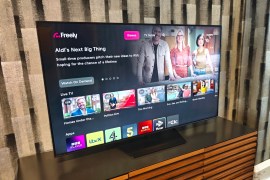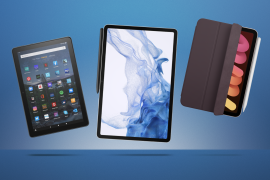Hands-on – B&W Zeppelin Air
We’ve just had a play around with the first iPod speaker dock to feature Apple AirPlay wireless streaming – and it’s got us decidedly hot under the collar
According to B&W, our demo with the Zeppelin Air was the first time that AirPlay had been demo’d properly in the UK – previous ears-on sessions with the tech had used wired-up audio kit.
The AirPlay system is as simple and elegant as anything Apple has created in the past. Once you’ve got the Zeppelin Air rigged up to your home’s Wi-Fi network (this requires a wee bit of fiddling about, as you have to physically connect the Zep to your computer to set it up), you can fire up iTunes, click the AirPlay button and have music instantly playing on the speaker dock. You can stream to multiple Zeps – as we did – and adjust the volume independently on each from iTunes’ AirPlay window.
Alternatively, you can stream from any iPhone, iPod touch or iPad running iOS4.2, again via your Wi-Fi network. AirPlay works a little differently here: on the downside, you can only stream to a single Zeppelin Air from your device, rather than multiple units. On the plus side, you aren’t restricted to using iTunes for music playback – basically, any iOS app with a volume bar works with AirPlay, from Spotify to Last.fm. Just tap the AirPlay button while listening to something and it’ll start playing through the Zep Air.
The Zeppelin Air looks much like the company’s original Zeppelin dock, but the changes go way beyond adding AirPlay functionality. The guts have been completely replaced, along with the drivers. The results is a much more hi-fi like sound, with better stereo imaging and improved dynamics no matter the volume – you get a hefty wedge of bass at lower volumes, but crank it up and the algorithms kick in to ensure it’s kept to a level that doesn’t blow out the speakers or result in too much distortion.
The Zep Air is out in early March for £500. We’ll let you know if it’s worth that after we’ve had a chance to review it properly – but the initial signs are very promising indeed.



